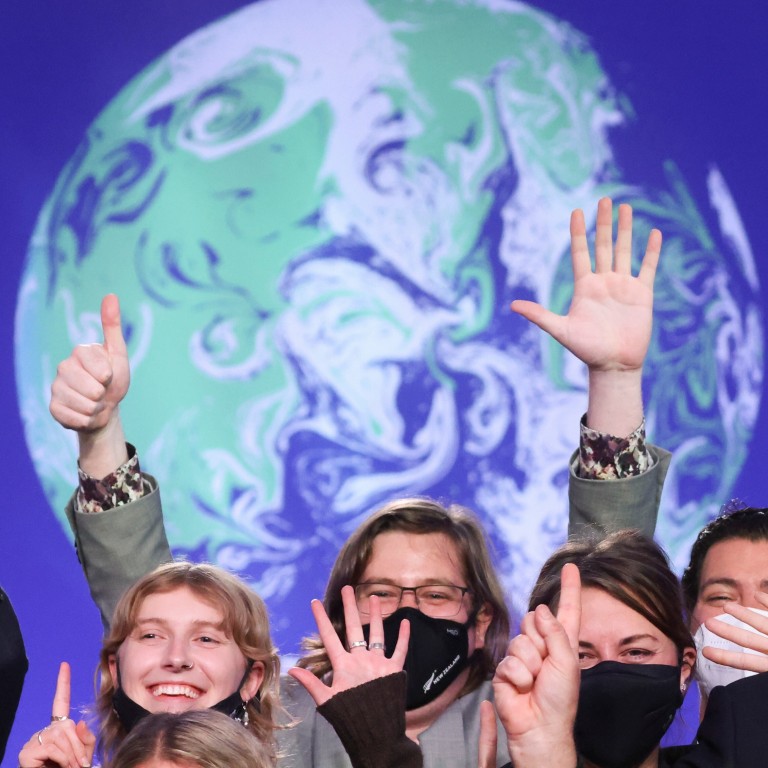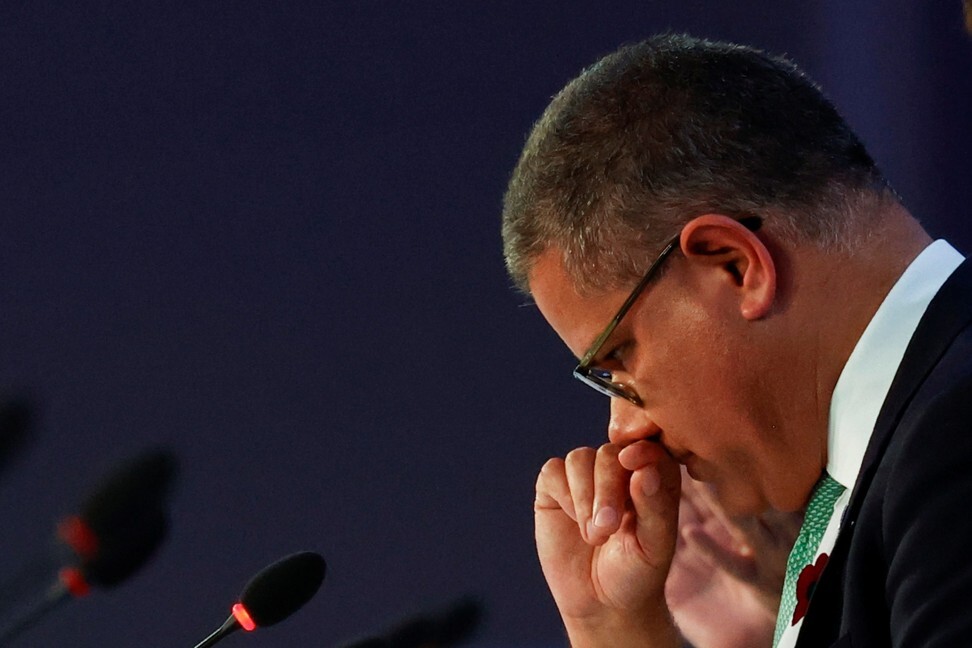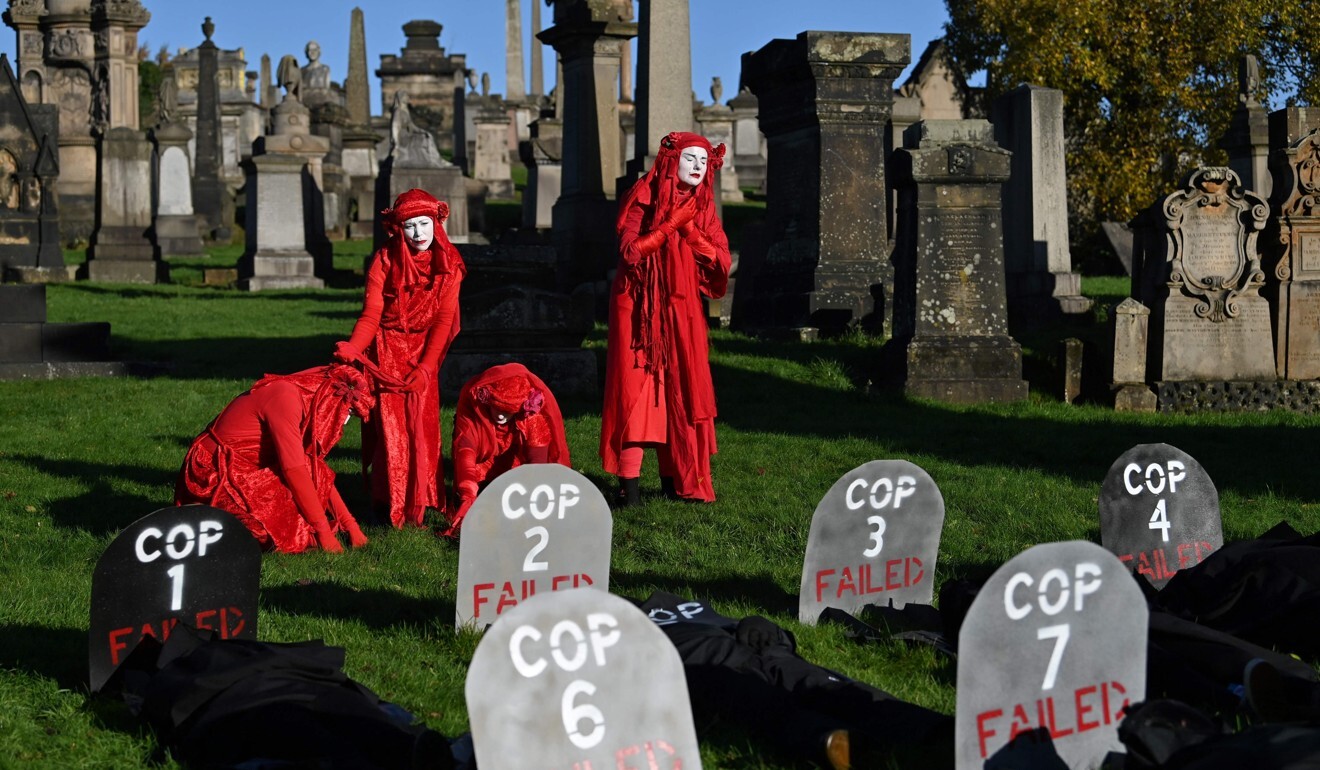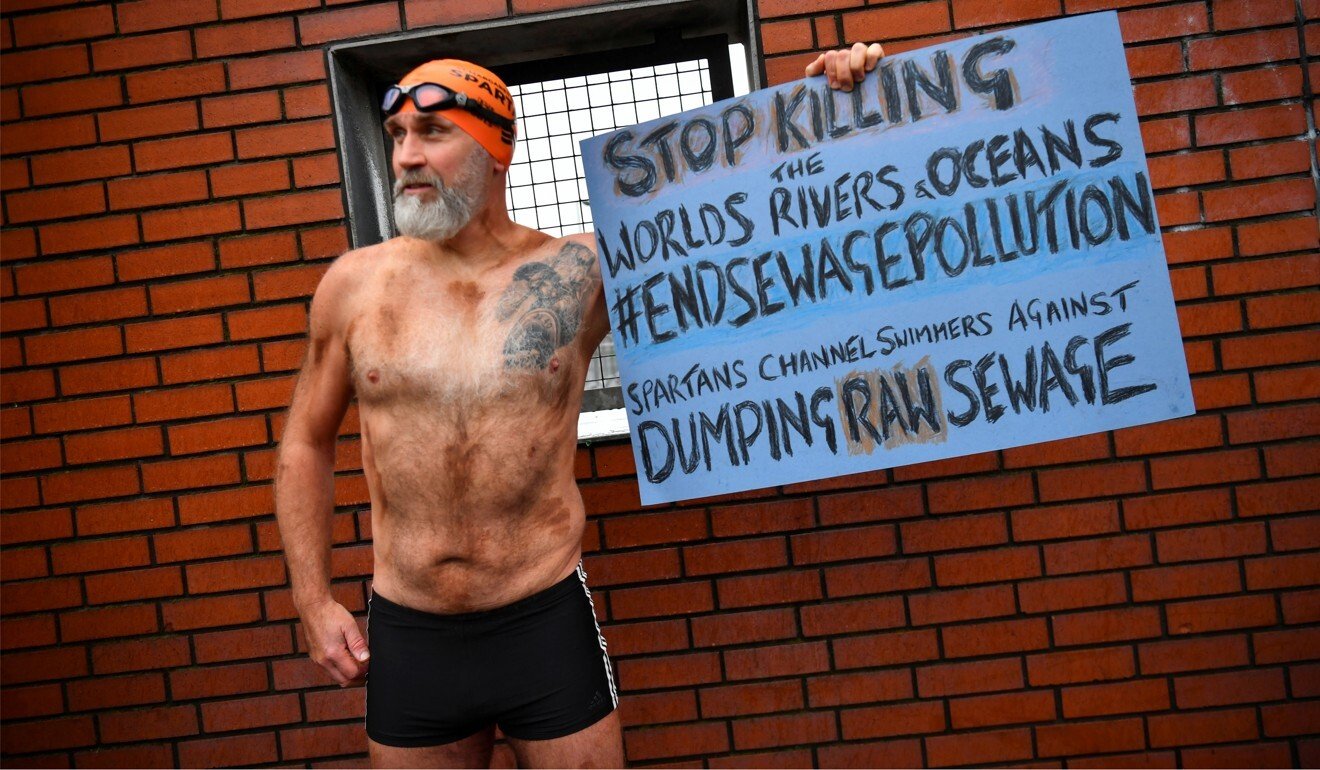
COP26 deal reached as nations seek to avert climate disaster
- The agreement came despite a last-gasp intervention from China and India seeking to water down language on fossil fuels in the summit’s text
- The text now calls on countries to begin ‘phasing down’ instead of ‘phasing out’ coal – still the first explicit mention of fossil fuels in a UN climate deal
Alok Sharma, the conference chairman, banged down his gavel to signal that there were no decisive objections from the almost 200 national delegations present in Glasgow, ranging from coal- and gas-fuelled superpowers to oil producers and Pacific islands being swallowed by the rise in sea levels.
The deal came despite a last-gasp intervention from China and India seeking to water down language on fossil fuels in the summit’s text.
“I apologise for the way this process has unfolded. I am deeply sorry,” Sharma told the hall, drawing sympathetic applause from the many who spoke out against the Sino-Indian step.

That turned to much louder cheers from the delegates when Sharma declared the climate agreement formally adopted, as attendees hugged and high-fived.
The summit’s final text called on countries of the world to begin phasing down coal, in the first agreement of its kind.
Many island states, including the representative for Fiji, criticised the last-minute proposed change to call on parties to “phase-down” rather than “phase-out” coal.
But it is the first explicit mentions of fossil fuels in a UN climate agreement.
Deciphering China’s relationship with coal as it aims for carbon neutrality
The final text also calls for the phasing out of inefficient fossil fuel subsidies, and for nations to strengthen their emissions-cutting targets for 2030 by the end of next year in a bid to limit dangerous warming.
This will see the implementation of Article 6 of the 2015 Paris Agreement, allowing countries to partially meet their climate targets by buying offset credits representing emission cuts by others.
British Prime Minister Boris Johnson declined to return to the conference for a victory lap, but said in a statement: “We asked nations to come together for our planet at COP26, and they have answered that call.”

He thanked the leaders, negotiators and campaigners who made the pact happen, but added that there was “still a huge amount more to do in the coming years”.
UN chief Antonio Guterres was more circumspect, welcoming the deal but warning that the world was still on the precipice of “catastrophe”.
“Our fragile planet is hanging by a thread,” Guterres said in a statement that hailed progress at the Glasgow summit, while stressing it was “not enough”. “We are still knocking on the door of climate catastrophe,” he added.
The deal is the result of two weeks of tortuous negotiations in Glasgow that had to be extended for an extra day to balance the demands of climate-vulnerable nations, big industrial powers, and those whose consumption or exports of fossil fuels are vital to their economic development.
Net zero or zero chance? 7 talking points as COP26 concludes
Delegates entered the talks charged with keeping the Paris Agreement goal of limiting temperature rises to 1.5 to 2 degrees Celsius within reach.
They were also tasked with finding the funding for nations most at risk of climate-related droughts, floods and storms supercharged by rising seas.
Observers said the agreement fell far short of what is needed to avert dangerous warming and help countries adapt or recoup damages from the disasters already unfurling globally.

Laurence Tubiana, the architect of the Paris deal, said: “COP has failed to provide immediate assistance for people suffering now.”
Swedish environmental activist Greta Thunberg said the summit had achieved nothing but “blah, blah, blah” – a phrase she has used in the past to describe the talks.
“The real work continues outside these halls. And we will never give up, ever,” the figurehead of the Fridays for Future movement posted on Twitter.
Reuters, Agence France-Presse and DPA
